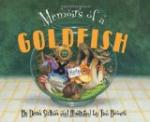Advantageous intercourse between civilized human beings requires a working knowledge of the elementary facts of history, of the achievements in art, music and letters, as well as of the principles of science and philosophy. When people go to quarreling over the importance of a particular phase of knowledge or education they are apt to forget that, after all, it is a purely relative matter, and that no one can reasonably belittle the value of any sort of information. But furious arguments arise over the question as to how history should be taught, and “whether a boy’s head should be crammed full of dates.” Nobody in his senses would want a boy’s head crammed full of dates any more than he would wish his stomach stuffed with bananas; but both the head and the stomach need some nourishment—better dates than nothing.
If a knowledge of a certain historical event is of any value whatsoever, the greater and more detailed our knowledge the better—including perhaps, but not necessarily, its date. The question is not essentially whether the dates are of value, but how much emphasis should be placed on them to the exclusion of other facts of history.
“There is no use trying to remember dates,” is a familiar cry. There is about as much sense in such a statement as the announcement: “There is no use trying to remember who wrote Henry Esmond, composed the Fifth Symphony, or painted the Last Supper.” There is a lot of use in trying to remember anything. The people who argue to the contrary are too lazy to try.
* * * * *
I suppose it may be conceded, for the sake of argument, that every American, educated or not, should know the date of the Declaration of Independence, and have some sort of acquaintance with the character and deeds of Washington. If we add to this the date of the discovery of America and the first English settlement; the inauguration of the first president; the Louisiana Purchase; the Naval War with England; the War with Mexico; the Missouri Compromise, and the firing on Fort Sumter, we cannot be accused of pedantry. It certainly could not do any one of us harm to know these dates or a little about the events themselves.
This is equally true, only in a lesser degree, in regard to the history of foreign nations. Any accurate knowledge is worth while. It is harder, in the long run, to remember a date slightly wrong than with accuracy. The dateless man, who is as vague as I am about the League of Cambray or Philip II, will loudly assert that the trouble incident to remembering a date in history is a pure waste of time. He will allege that “a general idea”—a very favorite phrase—is all that is necessary. In the case of such a person you can safely gamble that his so-called “general idea” is no idea at all. Pin him down and he will not be able to tell you within five hundred years the dates of some of the cardinal events of European history—the invasion of Europe by the Huns, for instance. Was it before or after Christ? He might just as well try to tell you that it was quite enough to know that our Civil War occurred somewhere in the nineteenth century.




